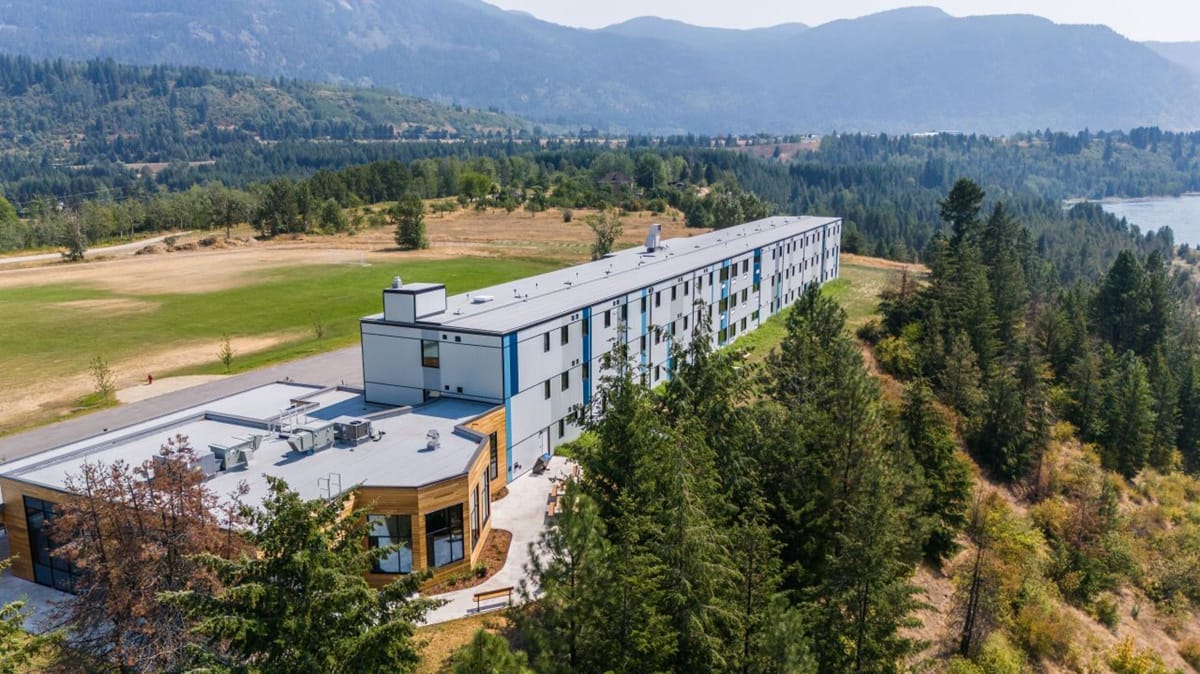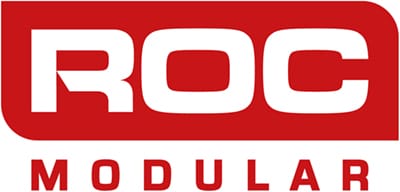Castlegar Student Housing, Selkirk College
ROC Modular was proud to deliver a much-needed new permanent modular Student Housing Residence for Selkirk College, located in Castlegar, a community in the Kootenay region of Interior British Columbia, Canada. The project is one of two buildings delivered simultaneously for the University across the campus.
Modular construction was chosen as the ideal solution to provide high-quality, fast-track affordable housing for students, delivering a 3-storey, 30-module, 114-student bed building with a mass-timber main common area for student amenities. The project houses students attending Selkirk College and each dorm unit has a shared washroom, and the building also has a number of communal areas including welcoming common spaces, spacious communal kitchens, an allotment of family units and the all-important study rooms. Incorporating modern design, the buildings place a premium on today’s learner. Aligning with BC’s Wood First Initiative and designed to meet Step 4 of the province’s Energy Step Code. There is a beautifully designed covered walkway connecting the current 100-unit student housing with the new building.
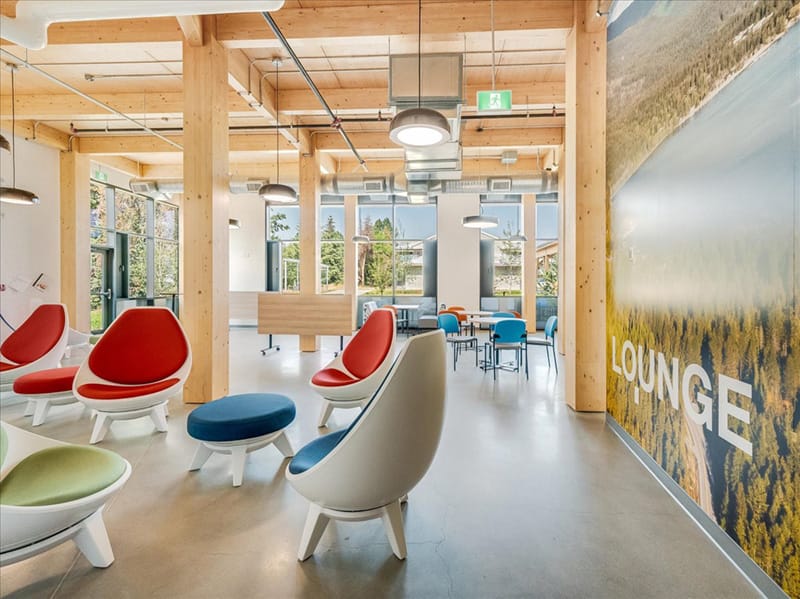
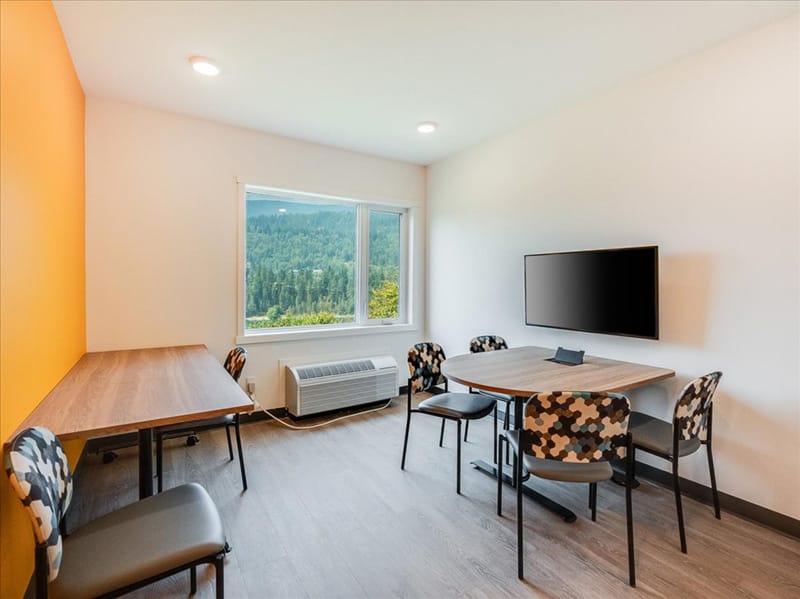
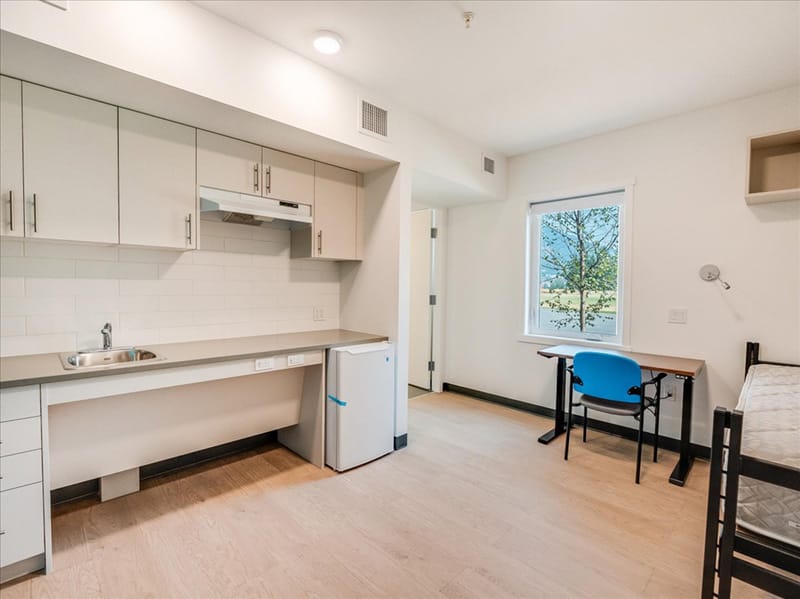
The project achieved step-code 4 of the BC Energy code, receiving exceptional ratings for energy efficiency and environmental design. Utilizing modular construction allowed for a faster schedule while minimizing waste and maximizing efficiency during construction. The project was designed to achieve a high level of energy performance by applying passive design principles, and the goal for the project was to increase the overall performance of the building through sustainable construction materials and improved energy efficiency. The hybrid integration of modular and mass-timber for the project provided technical innovation and beautiful architectural design for the finished building. The mass-timber in the main common areas provided open spans and beautiful architectural details, this hybrid method blended seamlessly together to create a stunning project.
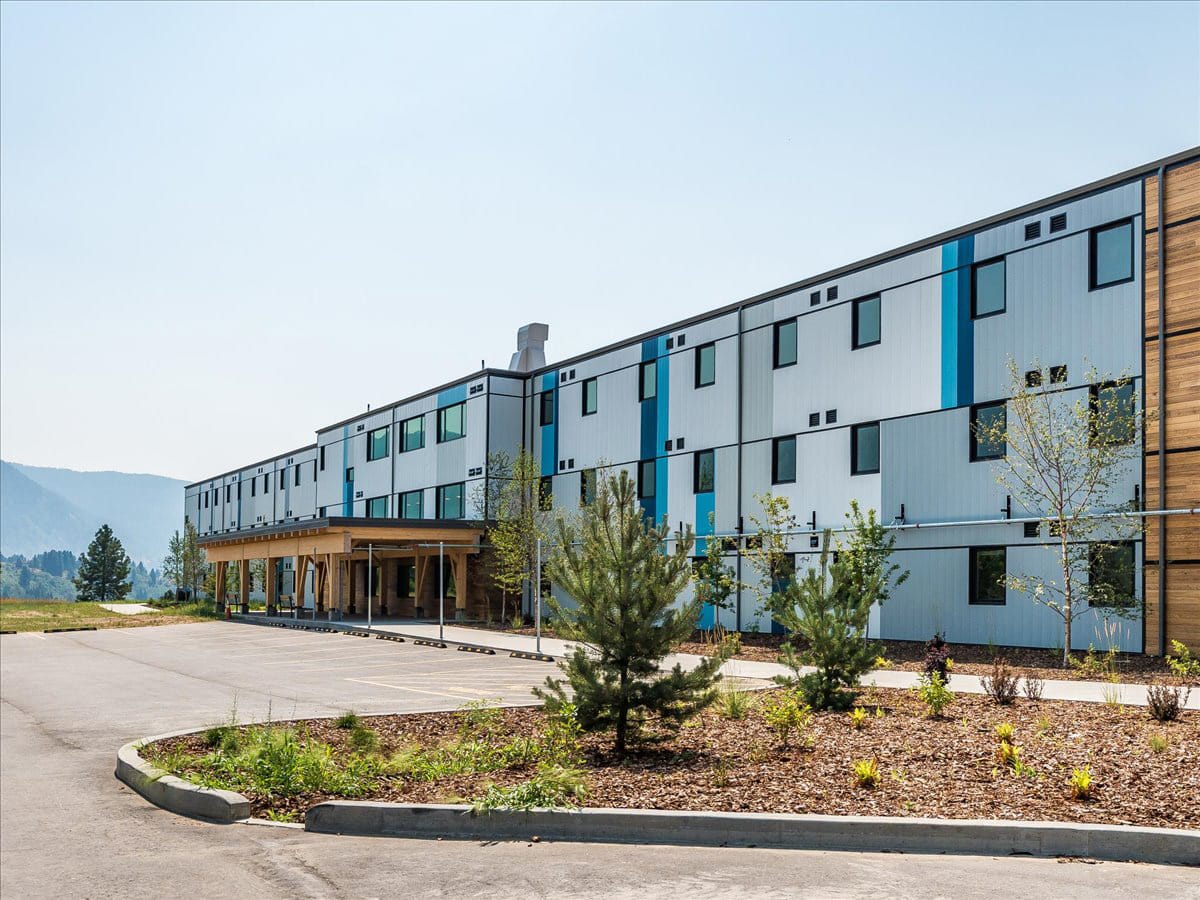
Modular construction provided a fast-track schedule which reduced overall project cost and enables Selkirk College to meet the needs of both students and the community. High-quality modular student housing is a critical element for learner success and the completed project will result in better outcomes across the institution. Due to the Interior BC location of this project and a lack of trade availability in the area, modular construction provided the best option and lots of design consideration was given to completing as much in the factory as possible. Building in the ROC Factory reduced the need for trades and allowed the project to be completed faster and more cost-effectively. All interior finishes were completed in the factory prior to delivery, and all furnishings were installed, with a high degree of finish.
More from Modular Advantage
AoRa Development Aims for New York’s First Triple Net Zero Building Using Modular Methods
More cities are providing funding for newer infrastructure projects as long as they meet sustainability requirements. This is how modular can fit the bill, thanks to its lower waste production.
Developers and Designers: Lessons Learned with Modular Design
Modular construction is attractive to many developers because sitework and module construction can occur simultaneously, shortening the schedule and reducing additional costs.
UTILE: Putting Modular Building on a Fast Track
In Quebec, UTILE is taking the lead in creating affordable modular buildings to help decrease the student housing shortage. During the process, the company discovered what it takes to make the transition to modular building a success.
Sobha Modular Teaches Developers How to Think Like Manufacturers
With its 2.7 million square foot factory in UAE, Sobha Modular is bringing both its high-end bathroom pods to high-end residences to Dubai while developing modular projects for the U.S. and Australia.
RoadMasters: Why Early Transport Planning is Make-or-Break in Modular Construction
In modular construction, transportation is often called the “missing link.” While it rarely stops a project outright, poor planning can trigger costly delays, rerouting, and budget overruns.
Navigating Risk in Commercial Real Estate and Modular Construction: Insights from a 44-Year Industry Veteran
Modular projects involve manufacturing, transportation, and on-site assembly. Developers must understand exactly what they are responsible for versus what they subcontract. Risk advisors should research the developer’s contractors, subcontractors, and design-build consultants—especially the modular manufacturer.
Art²Park – A Creative Application of Modular and Conventional Construction
Art²Park is more than a park building—it’s a demonstration of what modular construction can achieve when thoughtfully integrated with traditional materials. The use of shipping containers provided not only speed and sustainability benefits but also a powerful structural core that simplified and strengthened the rest of the building.
Building Smarter: A New Standard in Modular Construction Efficiency
Rising material prices, labour shortages, expensive financing and tightening environmental rules have made conventional construction slower, costlier, and more unpredictable. To keep projects on schedule and within budget, builders are increasingly turning to smarter industrialized methods.
Resia: Breaking All the Rules
Resia Manufacturing, a division of U.S.-based Resia, is now offering prefabricated bathroom and kitchen components to industry partners. Its hybrid fabrication facility produces more precise bathroom and kitchen components (modules) faster and at lower cost than traditional construction. Here’s how Resia Manufacturing does it.
How LINQ Modular Innovates to Bring Modular To The Market in the UAE and Beyond
LINQ Modular, with an office and three manufacturing facilities in Dubai, is a modular firm based in United Arab Emirates. The company is on a mission: to break open the housing and construction markets in the Gulf Cooperation Council (GCC) area with modular.

